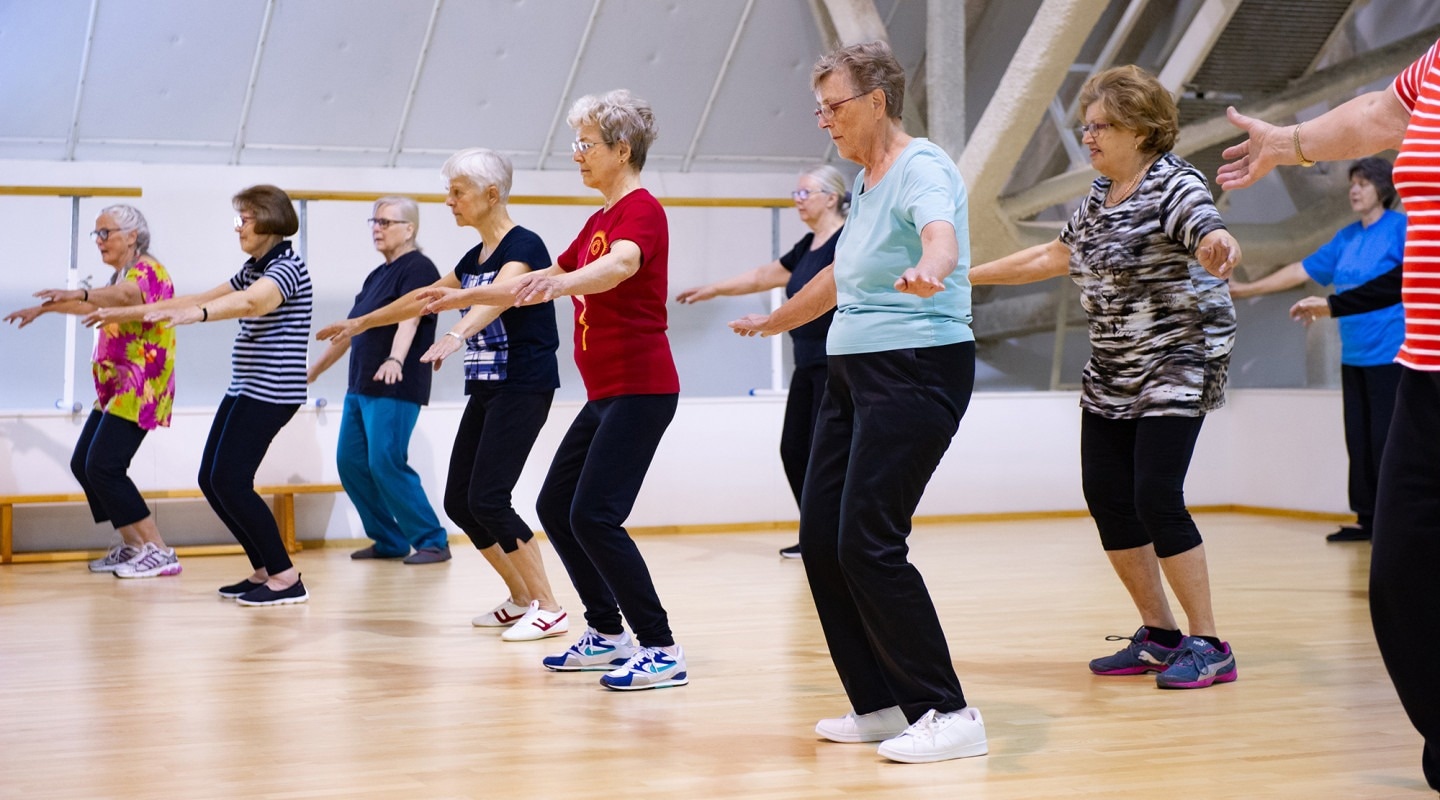Providing better opportunities for exercise and group training reduced recurrent falls and fall injuries among older women, a new study from the University of Eastern Finland shows. The findings were published in Age and Aging.

Image Credit: University of Eastern Finland
Previous studies have shown that exercise can promote the health and functional capacity of older people. Although the health benefits of exercise are widely documented, pragmatic trials demonstrating the effectiveness of societal strategies to increase exercise for fall prevention, for example, are sparse.
In collaboration with the City of Kuopio, Finland, the Kuopio Musculoskeletal Research Unit at the University of Eastern Finland conducted a large population-based randomized controlled trial involving a total of 914 women. The researchers examined whether providing better opportunities for exercise and group training can prevent falls and fall-related injuries.
The mean age of the women participating in the study was 76.5 years at baseline, and the participants were randomized into two groups: the exercise intervention group and the control group. The exercise intervention group received free 12-month admission to the city's recreational sports facilities, including supervised weekly gym and Thai Chi sessions during first 6 months of the intervention.
The women were followed up for about two years. Information on recent falls was collected every two weeks through SMS queries and fall diaries. A total of 1,380 falls were recorded during the follow-up, and details surrounding the incidents were verified by telephone in 93% of the cases.
As expected, nearly half of the recorded falls occurred on even surfaces, most often caused by tripping or slipping. One in four falls occurred indoors.
In both groups, about 60% of women fell at least once during the follow-up. However, the effects of the exercise intervention were particularly visible when it came to recurrent falls, and injuries and fractures caused by falls. In the exercise intervention group, there were 14.3% fewer falls overall, and 25.6% fewer falls indoors than in the control group. In addition, there were fewer fall-related injuries overall in the intervention exercise group. The number of falls causing significant pain was an impressive 41% lower, and the number of falls leading to a fracture diagnosis was 38% lower than in the control group.
The study showed that light- or moderate-intensity group training with free admission to sports facilities can prevent falls and reduce fall-related injuries among older women in an urban environment.
A wider implementation of such strategies by municipal services and communities should be promoted in order to achieve these goals. Overall, an approach where local communities work alongside health care professionals to prevent falls seems to work best."
Toni Rikkonen, First Author, Senior Researcher, University of Eastern Finland
Source:
Journal reference:
Rikkonen, T., et al. (2023). Effectiveness of exercise on fall prevention in community-dwelling older adults: a 2-year randomized controlled study of 914 women. Age and Ageing. doi.org/10.1093/ageing/afad059.